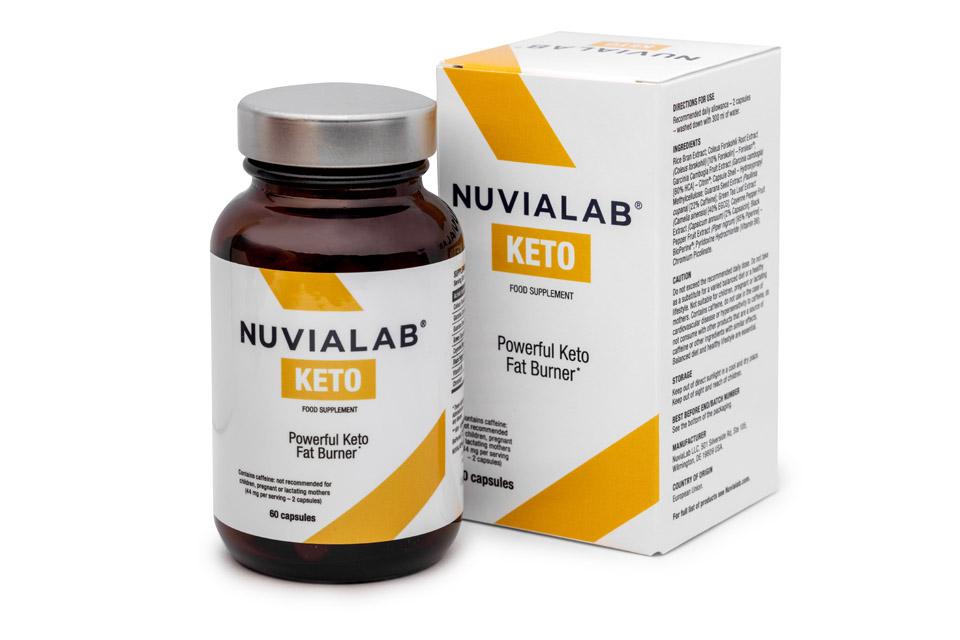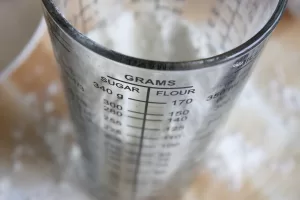Take Control of your Keto Diet Today...
Time to Read:
Introduction
The ketogenic (keto) diet has gained significant popularity due to its potential for weight loss, improved mental clarity, and other health benefits. However, like any dietary change, transitioning to a keto lifestyle can come with its own set of challenges.
One common concern for many keto dieters is constipation. This article delves into the relationship between the ketogenic diet and constipation, exploring why this issue might arise and offering practical solutions to keep your digestive system running smoothly.
Does the Keto Diet Cause Constipation?
Keto Constipation can be a side effect for some individuals when they start a ketogenic diet. Here’s why:
1. Sudden Dietary Changes
Switching to a keto diet involves a drastic reduction in carbohydrates and an increase in fat intake. This sudden change can shock your digestive system, leading to temporary constipation.
Carbohydrates, especially fiber-rich sources like whole grains, fruits, and legumes, are reduced significantly on a keto diet.
Since fiber plays a crucial role in maintaining bowel regularity, its reduction can lead to constipation.
Beneficial Bacteria and Constipation
When cutting carbs on keto, there can be a delay in the ‘resetting’ of bacteria in the gut.
As carb-loving bacteria die off, they’ll need to be replaced with fat-loving bacteria before the digestive function can return to normal… During this delay, constipation can occur.
Once the ‘reset’ has completed, the improvements in general digestive health include reduced inflammation and even reduction of symptoms of epilepsy and M.S.
2. Low Fiber Intake
While the keto diet allows non-starchy vegetables, many new keto dieters might inadvertently consume less dietary fiber, particularly if they aren’t used to eating large amounts of fibrous vegetables.
Since higher carb, fiber-rich foods like fruits, whole grains, and starchy vegetables are off limits or significantly restricted for those following a keto diet, it can be a challenge to get enough fiber in the diet.
Fiber is crucial for promoting regular bowel movements. If someone on a keto diet does not consume adequate fiber from sources such as nonstarchy vegetables, they may encounter digestive problems, such as constipation.
Fiber helps add bulk to stools and promotes regular bowel movements, so a lack of dietary fiber can slow down digestion and lead to constipation.
3. Dehydration
The keto diet induces a state called ketosis, where the body burns fat for fuel instead of carbohydrates.
During the early stages of ketosis, the body excretes more water and electrolytes, which can lead to dehydration if not properly managed.
Dehydration can cause the stool to become dry and hard, making it difficult to pass.
In the early stages of ketosis, your body burns off its reserves of glycogen… dumping the accompanying water from your system… creating a rapid water loss.
Even your colon can become dehydrated… making it more difficult to poop.
4. Electrolyte Imbalance
Increased urination during the keto transition can also lead to a loss of essential electrolytes such as sodium, potassium, and magnesium.
These electrolytes are vital for muscle function, including the muscles in your digestive tract.
An imbalance can slow down bowel movements, contributing to constipation.
4 Easy Steps to Eliminate Constipation on the Keto Diet
If you’re experiencing constipation on the ketogenic diet, don’t worry. Here are four easy steps to help you get back on track:
1. Increase Your Dietary Fiber Intake
While the ketogenic diet restricts high-carb, fiber-rich foods, you can still get plenty of fiber from low-carb sources. Incorporate more of the following high fiber foods into your diet:
- Non-starchy vegetables: Broccoli, cauliflower, zucchini, spinach, and kale are excellent choices.
- Nuts and seeds: Chia seeds, flaxseeds, and almonds can add fiber without adding too many carbs.
- Avocados: A great source of fiber and healthy fats.
Consider adding fiber supplements like psyllium husk if you’re struggling to get enough fiber from food alone.
2. Stay Hydrated
Drink plenty of water throughout the day to help keep your digestive system functioning properly.
Aim for at least 8-10 glasses of water intake daily, and consider increasing this amount if you’re active or live in a hot climate.
Proper hydration helps soften stools, making them easier to pass.
3. Balance Your Electrolytes
Since the ketogenic diet can lead to an increased loss of electrolytes, it’s essential to replenish them.
Incorporate the following foods to maintain your electrolyte balance:
- Sodium: Add a pinch of sea salt to your meals or drink a broth.
- Potassium: Eat leafy greens, avocados, and nuts.
- Magnesium: Incorporate pumpkin seeds, spinach, and dark chocolate (in moderation).
Consider using electrolyte supplements in your water intake if you find it challenging to get enough from food sources alone.
4. Exercise Regularly
Physical activity can help stimulate digestion and promote regular bowel movements.
Aim for at least 30 minutes of moderate exercise, like walking, swimming, or yoga, most days of the week.
Exercise not only aids in overall health but also keeps your digestive system active.
Constipated on Keto…? or just pooping less?
One common confusion with some side-effects of the keto diet is people thinking they are constipated – when they’re really just ‘going’ less often.
A properly formulated keto diet is based around fatty meats, fish, and healthy fats that provide your body with all the nutrients it needs in highly digestible formats.
Non-keto foods like high-fiber vegetables, corn, and beans produce measurably more ‘waste’, indicating just how useful (useless) they can be for your diet.
More useable nutrition in = less waste product out… It really can be as simple as that, with no need to be concerned about constipation at all.
To tell if you really are ‘constipated’, be aware of other signs of pathological constipation, including;
- Bloating
- Abdominal pain
- Excessive gas
- Bloody stools
- Difficult bowel movements.
Additional Positive Steps to Combat Constipation
By incorporating these additional steps into your routine, alongside the four primary strategies, you can effectively manage and prevent constipation on your Keto diet, ensuring a smoother and more enjoyable experience.
Our Recomended “All-In-One” Keto Flu Suppliment

SEE OFF KETO FLU WITH NUVIALAB
NuviaLab Keto supports weight loss, adds energy, supports fat metabolism and provides support during the so-called “keto flu”.
AND, it helps improve digestion and stabilize blood sugar levels
Keto Constipation : Summary
Constipation can be a frustrating side effect when starting the keto diet, but with the right adjustments, it’s possible to overcome it.
By increasing fiber intake, staying hydrated, balancing electrolytes, and incorporating regular exercise, you can alleviate constipation and enjoy the benefits of a keto lifestyle.
Remember, any significant dietary change takes time for your body to adjust, so be patient and give yourself grace as you navigate this new way of eating.
If constipation persists, it’s always a good idea to consult with a healthcare professional to rule out any underlying conditions.
With the right approach, you can maintain digestive health and continue your journey toward your health and wellness goals on the ketogenic diet.
Further Reading
For further reading on the keto diet and its impacts on health, consider exploring additional resources and consulting with a nutritionist to tailor the diet to your individual needs.
Read more about common side effects such as Keto Flu
Or discover the various health benefits of the Ketogenic Diet
Medical References:–
Davis, L. (2020). *Keto Diet Constipation: Causes and Solutions*. Retrieved from [Healthline](https://www.healthline.com/nutrition/keto-constipation)
Perlmutter, D. (2018). *The Keto Diet and Digestive Health*. Retrieved from [Dr. Perlmutter](https://www.drperlmutter.com/keto-diet-and-digestive-health/)









